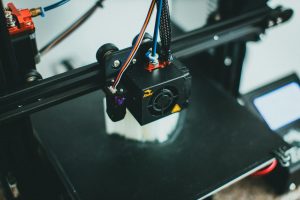Quantum Computing Software Tools Emerging for Researchers
Quantum computing has emerged as a hot topic in recent years, with its potential to revolutionize various industries and fields. As the technology develops and becomes more accessible, researchers and scientists are exploring ways to harness its power for solving complex problems and advancing scientific discovery. Key to this progress is the availability of advanced software tools tailored specifically for quantum computing. In this article, we will take a closer look at the emerging quantum computing software tools and their impact on researchers and their work.
The Growing Landscape of Quantum Computing Software
Quantum computing is based on the principles of quantum mechanics, which allow for processing and manipulating information using qubits – the quantum equivalent of classical bits. Unlike traditional computers, which use binary digits (0s and 1s), quantum computers can exist in multiple states simultaneously, offering unparalleled processing power. However, harnessing this potential requires specialized tools and programming languages that can handle the unique characteristics of quantum systems.
Quantum Software Development Kits (SDKs)
The first and most crucial piece of quantum computing software is the SDK. These are comprehensive development kits that provide researchers with a framework for building, testing, and running quantum algorithms. They typically include programming languages, libraries, compilers, and simulators, allowing for the creation of quantum circuits and experiments. Popular SDKs in the market include IBM’s Qiskit, Microsoft’s Q#, and Google’s Cirq.
Quantum Programming Languages
Quantum computing is a complex field, and the traditional programming languages used in classical computing are not suitable for the unique properties of quantum systems. As such, several new programming languages have emerged, specifically designed for quantum programming. Qiskit’s QASM, Microsoft’s Q#, and Rigetti’s Quil are some of the languages currently in use by developers and researchers working on quantum algorithms.
Quantum Simulators
Quantum simulators play a crucial role in quantum software development. These tools allow researchers to simulate quantum systems and test their algorithms without the need for expensive or limited hardware. They also enable researchers to track and debug their code, helping them identify and correct any errors. IBM’s Qiskit Aqua, Microsoft’s Q#, and Google’s Cirq have built-in simulators that researchers can use to test their programs before running them on actual quantum hardware.
The Impact on Research and Scientific Discovery
The availability of quantum computing software has a significant impact on researchers and their work. With the right tools at their disposal, scientists can now explore and test complex quantum algorithms without having to build their own quantum computer. This has significantly reduced the barrier to entry for conducting quantum research, allowing more researchers to enter the field and contribute to its growth and development.
Faster Processing and Solving Complex Problems
One of the most significant advantages of using quantum computing software is its ability to process and solve complex problems at a much faster rate. Quantum computers excel at performing operations in parallel, making them ideal for tackling problems that are computationally intense and time-sensitive. This has significant implications for fields such as chemistry, materials science, and drug discovery, where traditional computers struggle to keep up with the complexity of the problems.
Advanced Scientific Discovery
The increased processing power of quantum computers, coupled with the ability to tackle complex problems, has enabled researchers to make breakthroughs in various scientific areas. From developing better and more efficient batteries to uncovering new materials with unique properties, quantum computing software has opened up a world of possibilities for scientific discovery. It is also playing a critical role in advancing artificial intelligence, offering new ways for machines to learn and process data.
Conclusion
Quantum computing software tools are rapidly advancing, paving the way for researchers to harness the potential of quantum computing in their work. With the availability of SDKs, programming languages, and simulators, the barriers to entry for conducting quantum research have significantly reduced, making it a more accessible and exciting field to explore. As quantum computing continues to evolve, we can only expect more powerful and innovative software tools to emerge, driving further advancements in research and scientific discovery.










